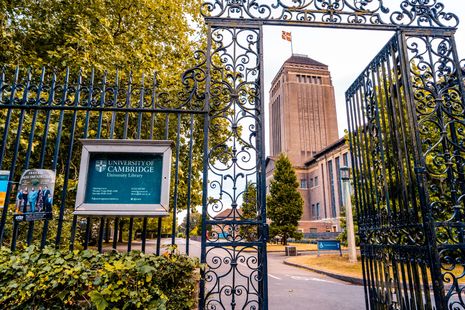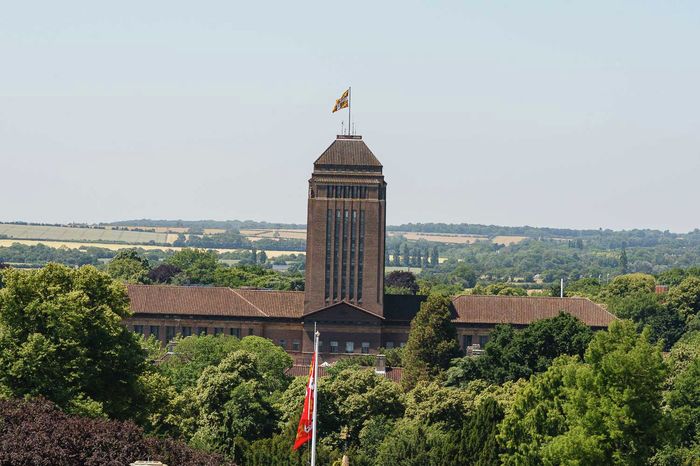New UL collection seeks to ‘expose’ British family’s link to slavery
The collection has been largely assembled by a Cambridge PhD student

A new collection launched by the Cambridge University Library promises to “expose the kinship and brutality” behind a powerful British slave-trading dynasty.
Based on research by Malik Al Nasir, a PhD student at St Catharine’s College, the new Sandbach Tinne Collection includes more than 600 letters, photos and papers linked to the Sandbach Tinne family’s business activities.
These included trading and selling enslaved people from the West African Gold Coast, as well as raw materials such as cotton, sugar, and tobacco. The items were largely privately acquired by Al Nasir throughout his research.
The collection suggests that the Sandbach Tinne dynasty continued to traffic enslaved Africans into British Guiana as late as 1847, despite slavery being banned in the British Empire in 1833, and the slave trade banned in 1807.
David Olusoga, a renowned historian of British colonialism and its legacies, commented on the importance of Al Nasir’s research to studies of Britain’s role in slavery.
He stated: “[In the future], we’ll struggle to imagine how we tried to understand Britain’s involvement in slavery and the slave trade without this huge dynastic epic at the centre of it.”
The origin of Al Nasir’s research lies in his successful search for a family connection to Andrew Watson, the world’s first Black international football player.
Al Nasir had changed his name from Mark Watson when he converted to Islam, and noticed a resemblance to the footballer when watching a BBC documentary.
His research led him to uncover the historical connection between himself and the Sandbach Tinne family, tracing how the one family formed a dynasty of plantation and business owners through the eighteenth and nineteenth centuries.
Al Nasir is directly related to William Robertson Watson, a plantation overseer and member of the family, while his cousins continue to live on the land.
The research, much of it included in Al Nasir’s book ‘Searching for My Slave Roots: From Guyana’s Sugar Plantations to Cambridge,’ contributed to National Museums Liverpool’s community-led project on the Sandbach family and their colonial ties, as part of the city’s ongoing work to address its slavery-linked history.
The new collection is available both to University researchers and the wider public – accessible online at the Cambridge University Library’s ‘Digital Library’ page.
 News / Cambridge students accused of ‘gleeful’ racist hate crime4 December 2025
News / Cambridge students accused of ‘gleeful’ racist hate crime4 December 2025 News / Churchill announces June Event in place of May Ball3 December 2025
News / Churchill announces June Event in place of May Ball3 December 2025 News / Uni redundancy consultation ‘falls short of legal duties’, unions say6 December 2025
News / Uni redundancy consultation ‘falls short of legal duties’, unions say6 December 2025 News / Cambridge cosies up to Reform UK30 November 2025
News / Cambridge cosies up to Reform UK30 November 2025 Comment / Don’t get lost in the Bermuda Triangle of job hunting 24 November 2025
Comment / Don’t get lost in the Bermuda Triangle of job hunting 24 November 2025









